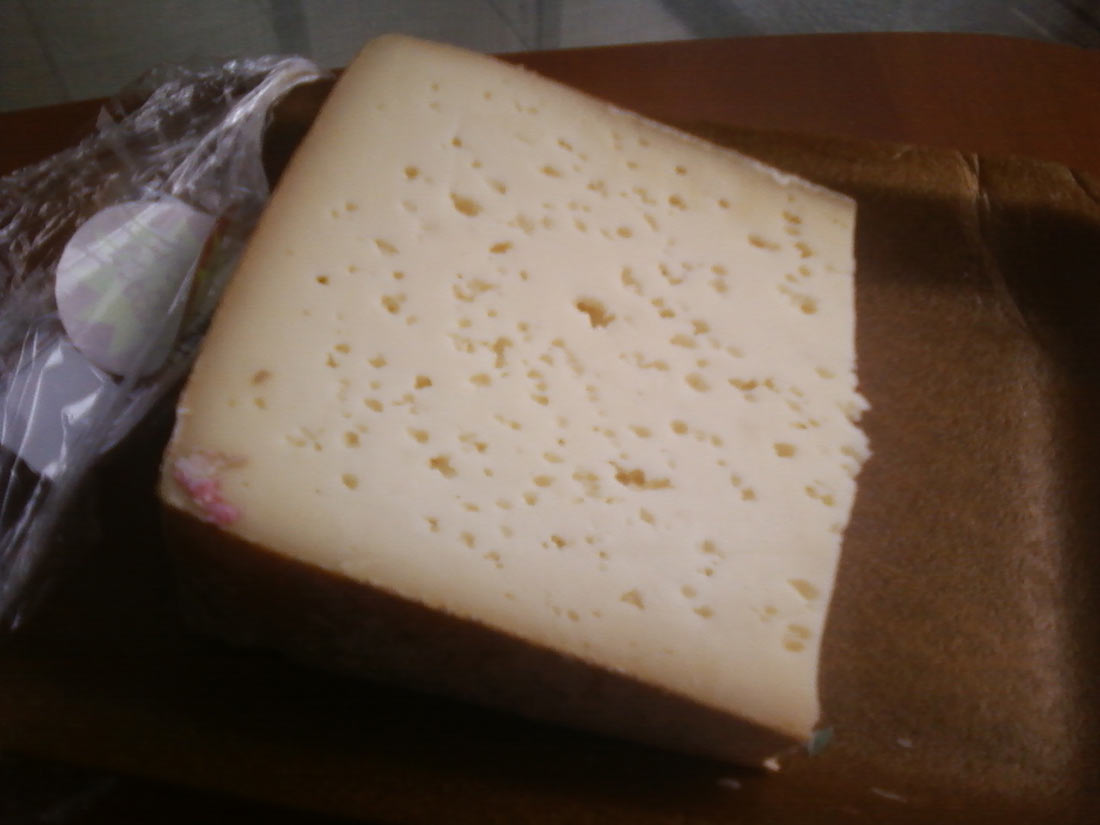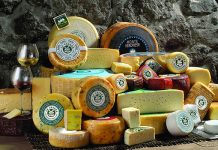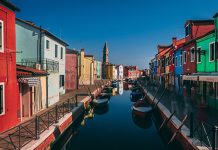Different kinds of Italian cheese are famous all over the world. It is even hard to list all of them produced all over the country. Sometimes it seems that each Italian village (even the tiniest one!) has its peculiar kind of cheese. And among them are not just mozzarella, gorgonzola or mascarpone. Daily routine of the farmers is a real art. And only in Italy you may find some kinds of cheese not everyone will dare to try them…

Photo: La Casara Caseificio https://www.flickr.com/photos/lacasara/ (https://creativecommons.org/licenses/by-sa/2.0/)
Grana Padano
This cheese is produced in several regions of Italy. These are Veneto, Trentino, Piedmont, Emilia-Romagna and Lombardy. This hard, semi-fat cheese needs up to two years to get ripened. Its salty and piquant taste with a slight nutty touch may remind you Parmigiano Reggiano. But the technological requirement for producing Parmigiano are more strict. But it doesn’t mean that Grana Padano tastes worse! According to Italian law, only those manufacturers can call their cheese Grana Padano, who strictly adhere the technology of its production.

Photo: Annabelle Orozco https://www.flickr.com/photos/annabelleorozco/ (https://creativecommons.org/licenses/by/2.0/)

Photo: Tenaya Darlington https://www.flickr.com/photos/madame_fromage/ (https://creativecommons.org/licenses/by-nd/2.0/)
Ubriaco (drunk cheese)
The word “ubriaco” means “drunk” or “intoxicated”. A wheel of cheese, made from raw cow’s milk, is bathed in Merlot, Cabernet and Raboso must for three months. After this it ripens for 6-10 months in special conditions. The texture of cheese is soft and creamy. It features absolutely unique sharp flavor with obvious notes of fruit and grape. Ubriaco is perfect when combined with light red wine.

Photo: La Casara Caseificio https://www.flickr.com/photos/lacasara/ (https://creativecommons.org/licenses/by-sa/2.0/)

Photo: tribp https://www.flickr.com/photos/82088316@N05/ (https://creativecommons.org/licenses/by/2.0/)
Pecorino di Fossa (formaggio di Fossa)
Pecorino di Fossa cheese is made from sheep’s milk collected in spring. The wheel of cheese, matured from May to August, is wrapped in a special cloth bag and laid in special underground pits (dug in tuff rock!) called fossa for three to four months. The result of the process is a hard, a bit bitter cheese with a taste of sheep’s milk. While somebody may find it not very attractive (due to a solid brown crust with multi-colored mold), its taste is unforgettable.

Photo: Monica Arellano-Ongpin https://www.flickr.com/photos/maong/ (https://creativecommons.org/licenses/by/2.0/)

Photo: Dottie Day https://www.flickr.com/photos/dottieday/ (https://creativecommons.org/licenses/by/2.0/)

Photo: Dan https://www.flickr.com/photos/twiga_swala/ (https://creativecommons.org/licenses/by-sa/2.0/)
Puzzone di Moena
This name means “Moena stinker”. There are two types of cheese — staggionato, which is ripened for more than 150 days, and di Malga, made from milk of Alpine pastures. This very hard cheese with orange sticky crust is ripened in caves with a high level of humidity. While its taste is quite pleasant, the cheese has intense flavor and smell.

Photo: Ferruccio Zanone https://www.flickr.com/photos/ferrucciozanone/ (https://creativecommons.org/licenses/by-sa/2.0/)

Photo: By Florixc (Own work) [CC0], via Wikimedia Commons
Casu Marzu
Casu Marzu means “cheese with worms”. It is the most unusual cheese in the world, but not everyone would dare to taste it. It is derived from Pecorino and produced only in Sardinia. It undergoes special fermentation to a stage of decomposition, brought about by the digestive action of the larvae of the cheese fly. While the cheese features strong texture with some liquid seeping out, the larvae, after the process of fermentation is over, appear as translucent white worms about 8 mm long. Be careful while eating this culinary wonder: the worms can launch themselves for distances up to 15 cm!

Photo: By Shardan (Own work) [CC BY-SA 2.5 (http://creativecommons.org/licenses/by-sa/2.5)], via Wikimedia Commons

Photo: Freek0303011 from nl [GFDL (http://www.gnu.org/copyleft/fdl.html) or CC-BY-SA-3.0 (http://creativecommons.org/licenses/by-sa/3.0/)], via Wikimedia Commons

Photo: By Shardan (Own work) [CC BY-SA 3.0 (http://creativecommons.org/licenses/by-sa/3.0) or GFDL (http://www.gnu.org/copyleft/fdl.html)], via Wikimedia Commons
What kind of cheese would you try first?



























